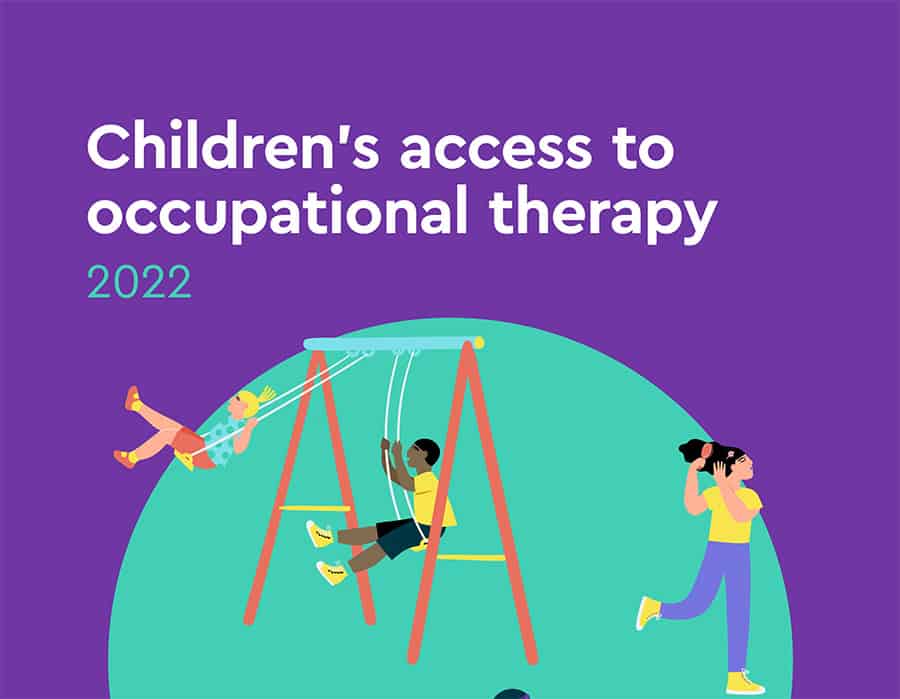85 percent of OTs say demand for children’s services has increased since July 2021

This is according to a new survey from the Royal College of Occupational Therapists (RCOT), which paints a worrying picture in the UK that children’s occupational therapy services are overstretched, underfunded, and at a “crisis point”.
Titled ‘Children’s access to occupational therapy’, the report reveals that staff are worried they cannot give children the level of help they need, as demand for children’s occupational therapy services has “risen sharply”.
Children’s occupational therapy services are vital to enable them to participate in the daily activities they want or need to do. They are crucial to children’s development, health, and well-being. Part of children’s occupational therapy services could involve life-changing assistive technology, such as standing powerchairs or standing aids, to support children’s impendence.
Almost 350 RCOT member occupational therapists (OTs) responded to the survey about children’s access to occupational therapy services in the UK over the last year. Responses came from OTs who work in NHS community teams, social care, independent practice, child and adolescent mental health services (CAMHS), acute services, schools, and the third sector.
The survey was carried out in July 2022 – one year on from RCOT’s report about COVID-19’s impact on children’s access to occupational therapy in July 2021.
Of those surveyed, 85 percent reported an increase in demand for services in the last year. This is already on top of an 80 percent increase reported July 2021.
Nearly two-thirds of respondents said that children and young people were presenting with more complex physical, mental health, and learning needs. Additionally, almost seven in 10 OTs reported that their teams were not fully staffed.
Almost half of the survey participants felt they could not provide the level or type of occupational therapy input that children and young people need.
Looking at equipment provision and adaptations, 22 percent of OTs said they were unable to provide the equipment and adaptations children and young people needed, when they needed it.
They gave these reasons:
- equipment manufacturing and delivery delays (49 percent of respondents; increased from 36 percent in 2021)
- limited availability of equipment reps (31 percent)
- therapists, school staff, families being unwell (29 percent)
- limited availability of contractors (14 percent)
- concerns about access to funding, delays in funding approval, and disagreements about who should pay for school equipment and adaptations
Furthermore, the report interestingly references the use of technology when OTs carry out assessments. Just over one-fifth of OTs said limited access to technology has made it difficult for some families to access their services. However, most services now offer a combination of face-to-face and virtual support.
Interestingly, 62 percent of OTs added that families have reported that digital or telehealth approaches have made it easier for them to access occupational therapy.
Commenting on the survey findings Dr Sally Payne, RCOT Professional Adviser for Children, Young People and Families, said: “We are seeing an unsustainable equation right across the UK. There is rising demand for children’s services, an increase in the complexity of children’s needs, often with pandemic-related anxiety, and not nearly enough staff to help them due to a workforce crisis.
“The outcome of this is that occupational therapists who work with children, many of whom have physical, learning, and mental health difficulties, can’t provide them with the support they badly need and deserve.
‘It feels like we are at a crisis point.”
In light of the survey findings, RCOT is now calling on the UK Government to find a solution to the drastic pressure on children’s occupational therapy services.
RCOT suggests that there needs to be funding for an occupational therapist in every school, a recruitment drive, better pay, and an improvement in children’s services to prevent a catastrophe from happening.
Importantly, the college also says that equipment and adaptation services require investment and should be streamlined to minimise delays in provision.
Earlier this year, RCOT joined forces with the Chartered Society of Physiotherapy (CSP) to provide a set of principles that offers a clear direction for creating quality, practice-based placements for both physiotherapy and occupational therapy learners (students and apprentices).

